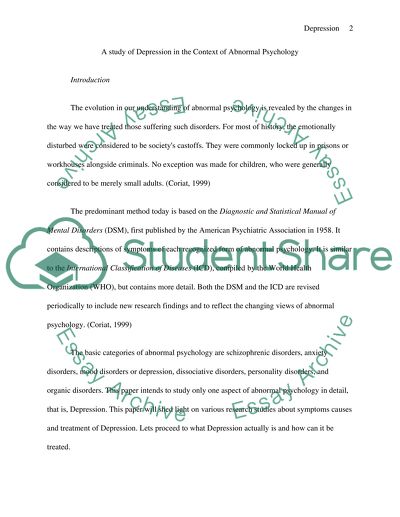Cite this document
(“Depression in the context of abnormal psychology Essay”, n.d.)
Depression in the context of abnormal psychology Essay. Retrieved from https://studentshare.org/psychology/1507083-depression-in-the-context-of-abnormal-psychology
Depression in the context of abnormal psychology Essay. Retrieved from https://studentshare.org/psychology/1507083-depression-in-the-context-of-abnormal-psychology
(Depression in the Context of Abnormal Psychology Essay)
Depression in the Context of Abnormal Psychology Essay. https://studentshare.org/psychology/1507083-depression-in-the-context-of-abnormal-psychology.
Depression in the Context of Abnormal Psychology Essay. https://studentshare.org/psychology/1507083-depression-in-the-context-of-abnormal-psychology.
“Depression in the Context of Abnormal Psychology Essay”, n.d. https://studentshare.org/psychology/1507083-depression-in-the-context-of-abnormal-psychology.


